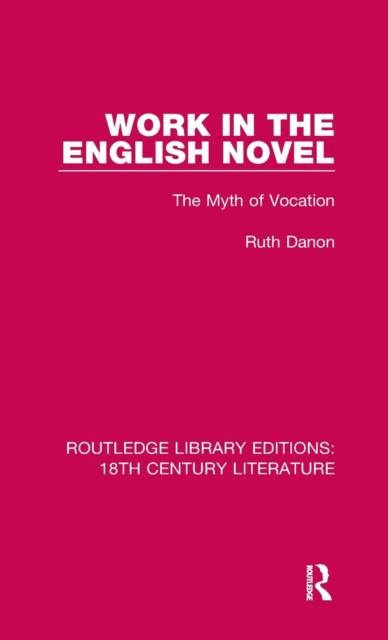
- Retrait gratuit dans votre magasin Club
- 7.000.000 titres dans notre catalogue
- Payer en toute sécurité
- Toujours un magasin près de chez vous
- Retrait gratuit dans votre magasin Club
- 7.000.0000 titres dans notre catalogue
- Payer en toute sécurité
- Toujours un magasin près de chez vous
Description
Originally published in 1985, this book traces the development of an ideal of work in English writing which runs parallel to that of the Protestant work ethic. The author has called this the myth of vocation: work is seen as the primary source of self-definition, psychic integration and fulfilment. The root, and the purest form, of the idea is to be found in Robinson Crusoe. This work, so seminal in many ways, presents a prototypical middle-class hero, caught in a conflict between the impulse to adventure and that to create and make profits.
The conflicts articulated in this work are picked up more or less explicitly by more than one of the great Victorian novelists. This book treats in detail several paradigmatic examples, deriving its terms of reference from modern sociological treatments of work and its effects on persons. The gospel of work need not result in capitalistic or protestant attitudes, but is compatible also with communistic ideas. This study serves to revalue the concept of work as a humanistic activity as well as offering a subtle reading of major works of literature.
Spécifications
Parties prenantes
- Auteur(s) :
- Editeur:
Contenu
- Nombre de pages :
- 224
- Langue:
- Anglais
- Collection :
- Tome:
- n° 7
Caractéristiques
- EAN:
- 9780367444617
- Date de parution :
- 22-01-20
- Format:
- Livre relié
- Format numérique:
- Genaaid
- Dimensions :
- 140 mm x 216 mm
- Poids :
- 408 g

Les avis
Nous publions uniquement les avis qui respectent les conditions requises. Consultez nos conditions pour les avis.






